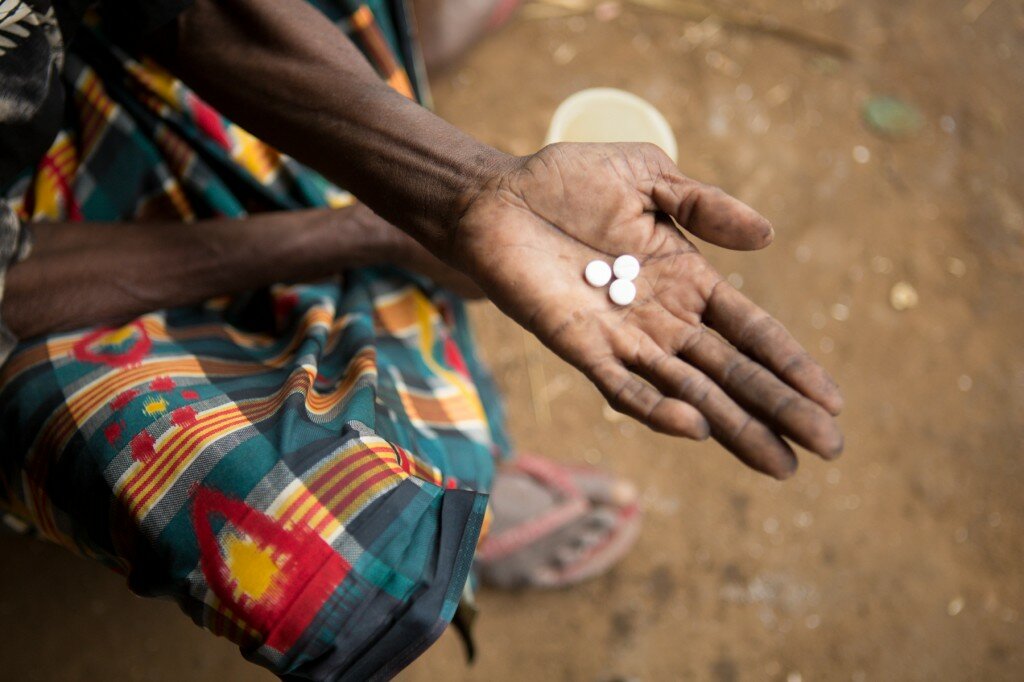
Starting this month, the Global Network will be presenting a round-up of articles on neglected tropical diseases (NTDs). Check back every month for the latest. To suggest an article, you may post a comment below.
1. Unprogrammed Deworming in the Kibera Slum, Nairobi: Implications for Control of Soil-Transmitted Helminthiases
PLoS Neglected Tropical Diseases – Published to PubMed 3/12/15
Julie R. Harris, Caitlin M. Worrell, Stephanie M. Davis, Kennedy Odero, Ondari D. Mogeni, Michael S. Deming, Aden Mohammed, Joel M. Montgomery, Sammy M. Njenga, LeAnne M. Fox, David G. Addiss
“In countries with endemic soil-transmitted helminth infections, deworming medications are widely available from multiple sources, including over the counter. However, in many countries, national programs already provide deworming medications in mass drug administrations to primary school students, as part of World Health Organization recommendations. Evaluations of the effectiveness of such medications at reducing worm burden in children is based solely on the national program’s distribution schedules, primarily because little is known about how frequently deworming medications are obtained from other sources. We investigated sources of deworming medications received by children in a Kenyan slum, finding that more than half of school-aged and preschool-aged children received deworming medications outside of a national school-based deworming program. These drugs were received from multiple sources, including chemists, healthcare centers, and at schools, via the efforts of non-governmental organizations. These data strongly indicate a need to collect data on all sources of deworming medications when evaluating the effectiveness of national school-based deworming programs.”
2. Mass Drug Administration for Trachoma: How Long Is Not Long Enough?
PLoS Neglected Tropical Diseases – Published to PubMed 3/23/15
Violeta Jimenez, Huub C. Gelderblom, Rebecca Mann Flueckiger, Paul M. Emerson, Danny Haddad
“Trachoma, the world’s leading infectious cause of blindness, is scheduled for elimination by 2020. Reaching this elimination target depends on successful implementation of the SAFE strategy (Surgery, Antibiotics, Facial cleanliness, and Environmental improvements). Annual mass antibiotic distributions are key to breaking the cycle of transmission in a community. However, it is not clear how many annual mass treatments need to be carried out in order to achieve elimination. Our study analyzes the effect of mass antibiotic distribution on different baseline prevalence levels of trachoma, in order to assess factors that affect the success of reaching elimination goals. We find that the prevailing belief, which suggests that 3 annual mass treatments can achieve local elimination of trachoma at prevalences between 10–30%, and 5 annual mass treatments for districts above this benchmark, is probably incorrect. In fact, much longer intervals may be required with “business as usual” programmatic strategies, which often include skipped years of treatment. Districts with high prevalence levels may require more intense treatment strategies to eliminate trachoma. Intensified recommendations must be implemented without delay in order to reach the 2020 elimination deadline.”
3. Neglected Tropical Disease Control and Elimination: Is Human Displacement an Achilles Heel?
PLoS Neglected Tropical Diseases – Published to PubMed 3/19/15
Kaylee Myhre Errecaborde, William Stauffer, Martin Cetron
“The United Nations High Commission for Refugees (UNHCR) has estimated that over 40 million people are currently displaced and have variable access to health care in the country in which they reside. Populations displaced by conflict are largely disenfranchised, and high prevalence of neglected tropical diseases (NTDs) has been documented. NTDs generally affect the least advantaged people in poor societies—populations with little voice or representation. These already susceptible people become even more vulnerable when forced from their communities as internally displaced persons (IDPs), refugees, or forced migrants. To further complicate matters, many of these people of concern are under 18 years old. Children experience the greatest risk and suffer the most consequences of NTDs. As marginalized populations flee from conflict or environmental catastrophe, they are often burdened with insidious NTDs ranging from asymptomatic to overt and debilitating disease. Many suffer from chronic consequences such as malnutrition, growth stunting and developmental delays, inhibiting chances for sustainable livelihoods and making it less likely that they will successfully overcome the adversity.”
4. Gut Instincts: Knowledge, Attitudes, and Practices regarding Soil-Transmitted Helminths in Rural China
PLoS Neglected Tropical Diseases – Published to PubMed 3/25/15
Louise Lu, Chengfang Liu, Linxiu Zhang, Alexis Medina, Scott Smith, Scott Rozelle
“Soil-transmitted helminths (STHs) are parasitic intestinal worms that infect more than two out of every five schoolchildren in rural China, an alarmingly high prevalence given the low cost and wide availability of safe and effective deworming treatment. Understanding of local knowledge, attitudes, and practices regarding STHs in rural China has until now, been sparse, although such information is critical for prevention and control initiatives. This study elucidates the structural and sociocultural factors that explain why deworming treatment is rarely sought for schoolchildren in poor villages of rural China with persistently high intestinal worm infection rates. In-depth, qualitative interviews were conducted in six rural villages in Guizhou Province; participants included schoolchildren, children’s parents and grandparents, and village doctors. We found evidence of three predominant reasons for high STH prevalence: lack of awareness and skepticism about STHs, local myths about STHs and deworming treatment, and poor quality of village health care. The findings have significant relevance for the development of an effective deworming program in China as well as improvement of the quality of health care at the village level.”




 Each month, END7 honors one student who has made a significant contribution to our growing movement of student advocates dedicated to seeing the end of neglected tropical diseases (NTDs). We are very proud to introduce our March 2015 Student of the Month, Lauren Crossman, the
Each month, END7 honors one student who has made a significant contribution to our growing movement of student advocates dedicated to seeing the end of neglected tropical diseases (NTDs). We are very proud to introduce our March 2015 Student of the Month, Lauren Crossman, the